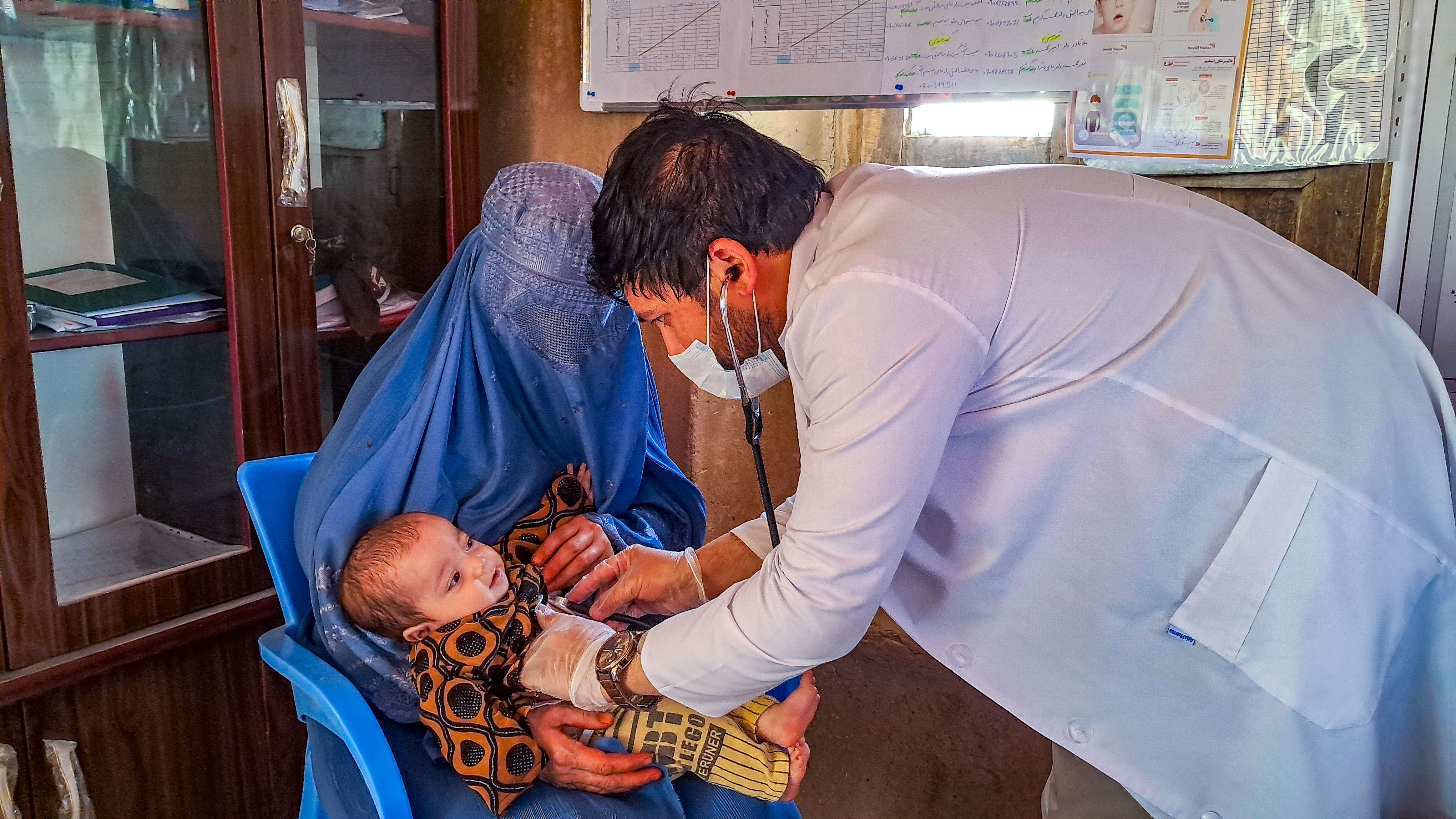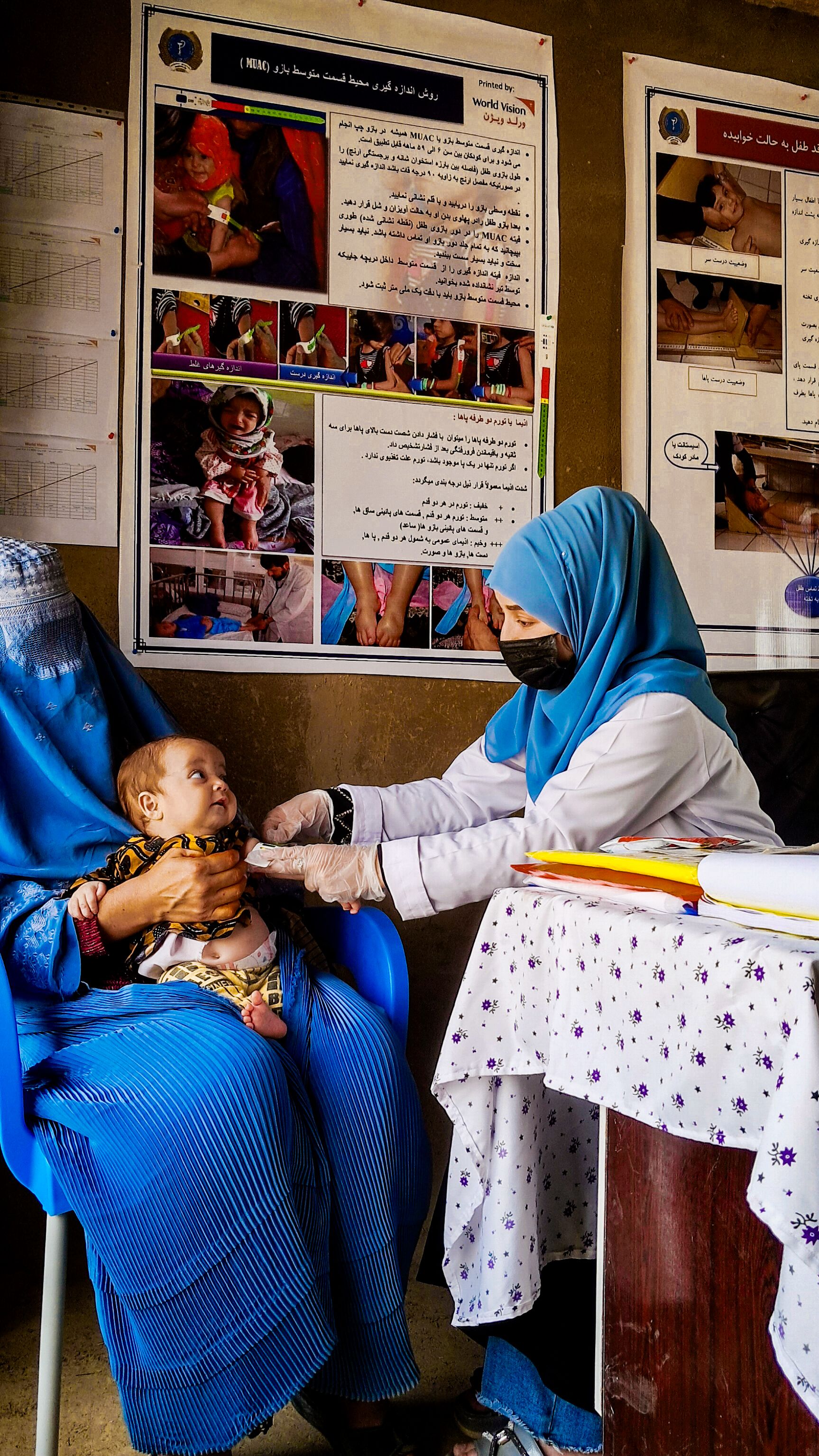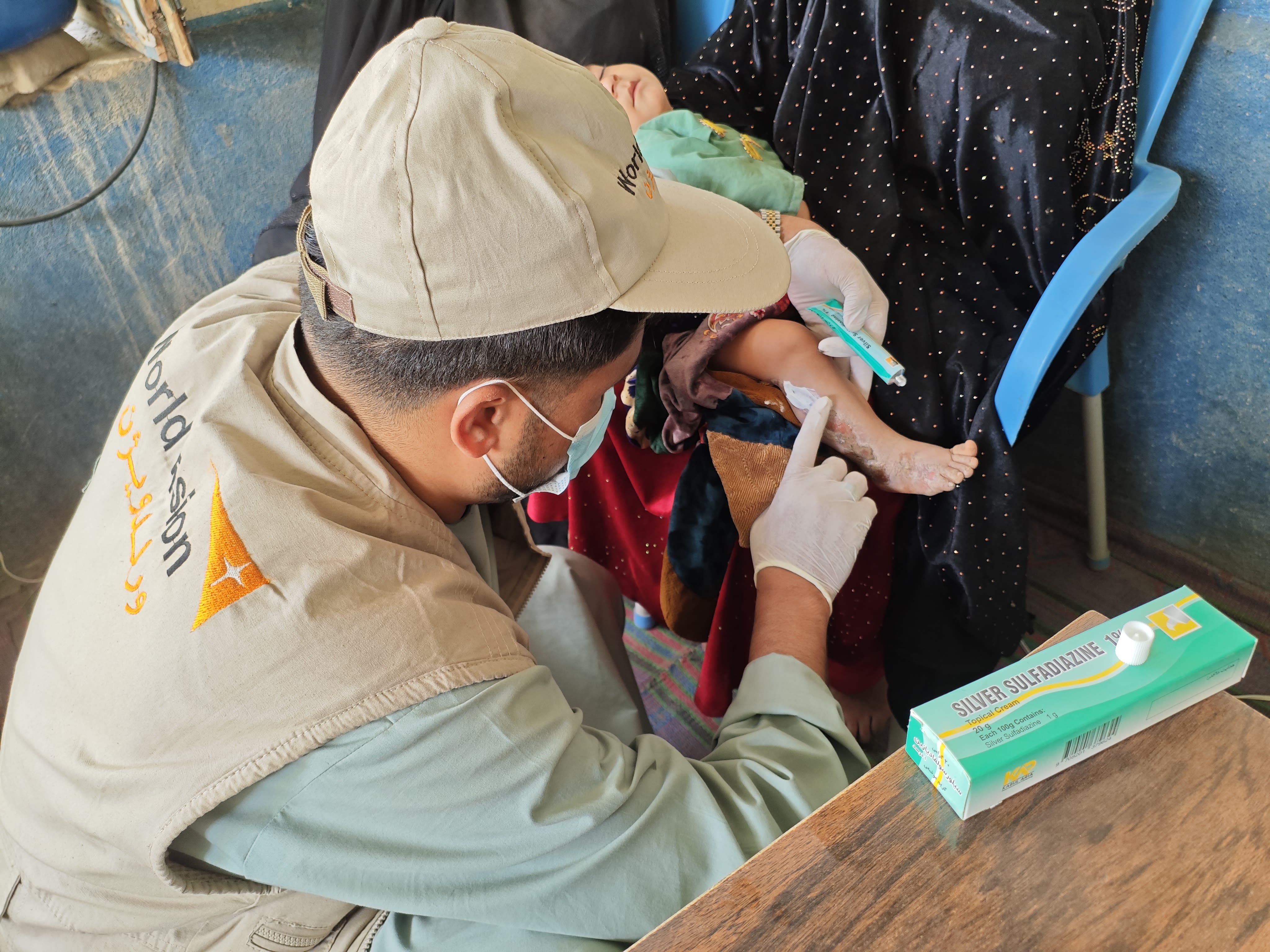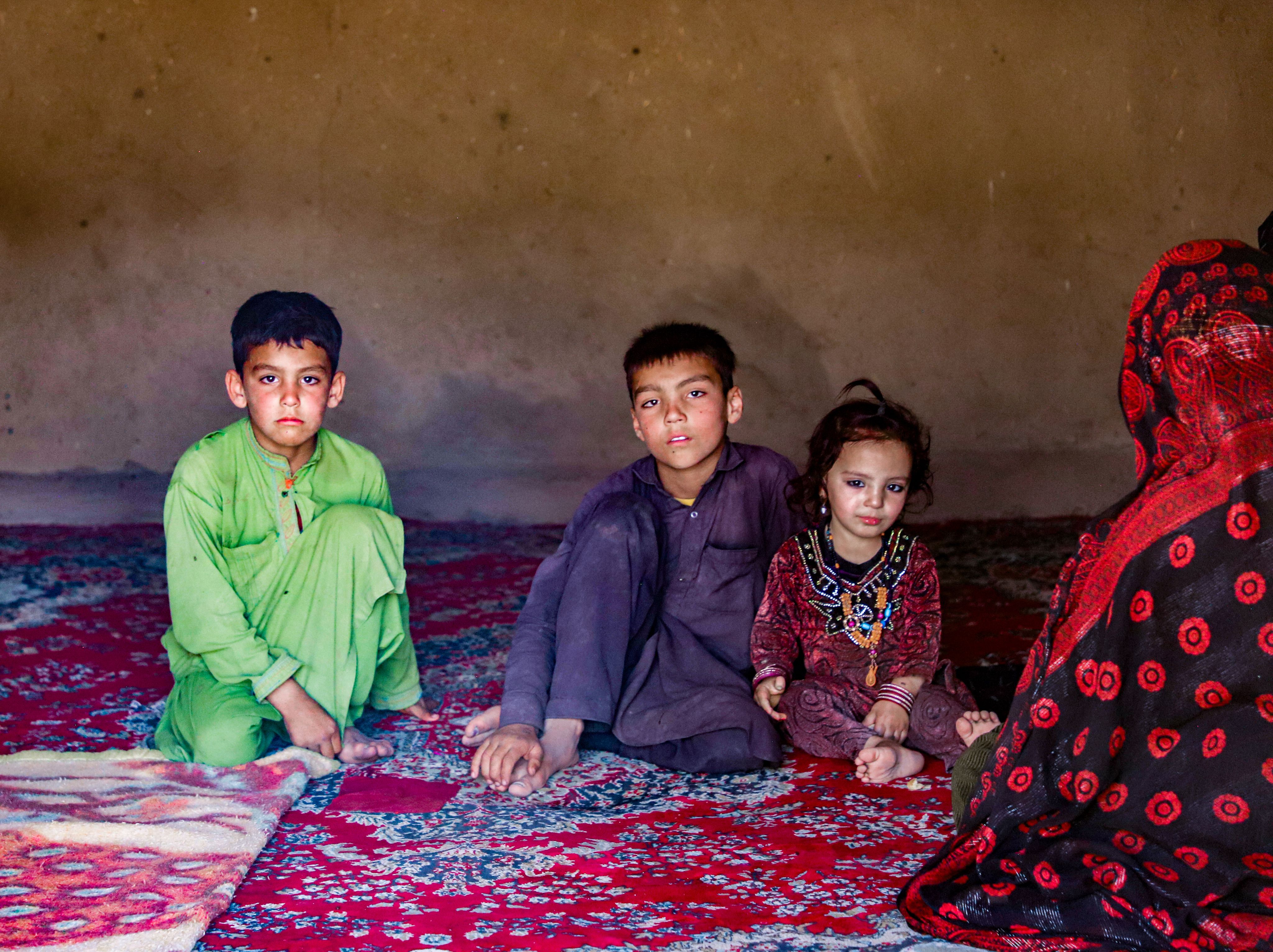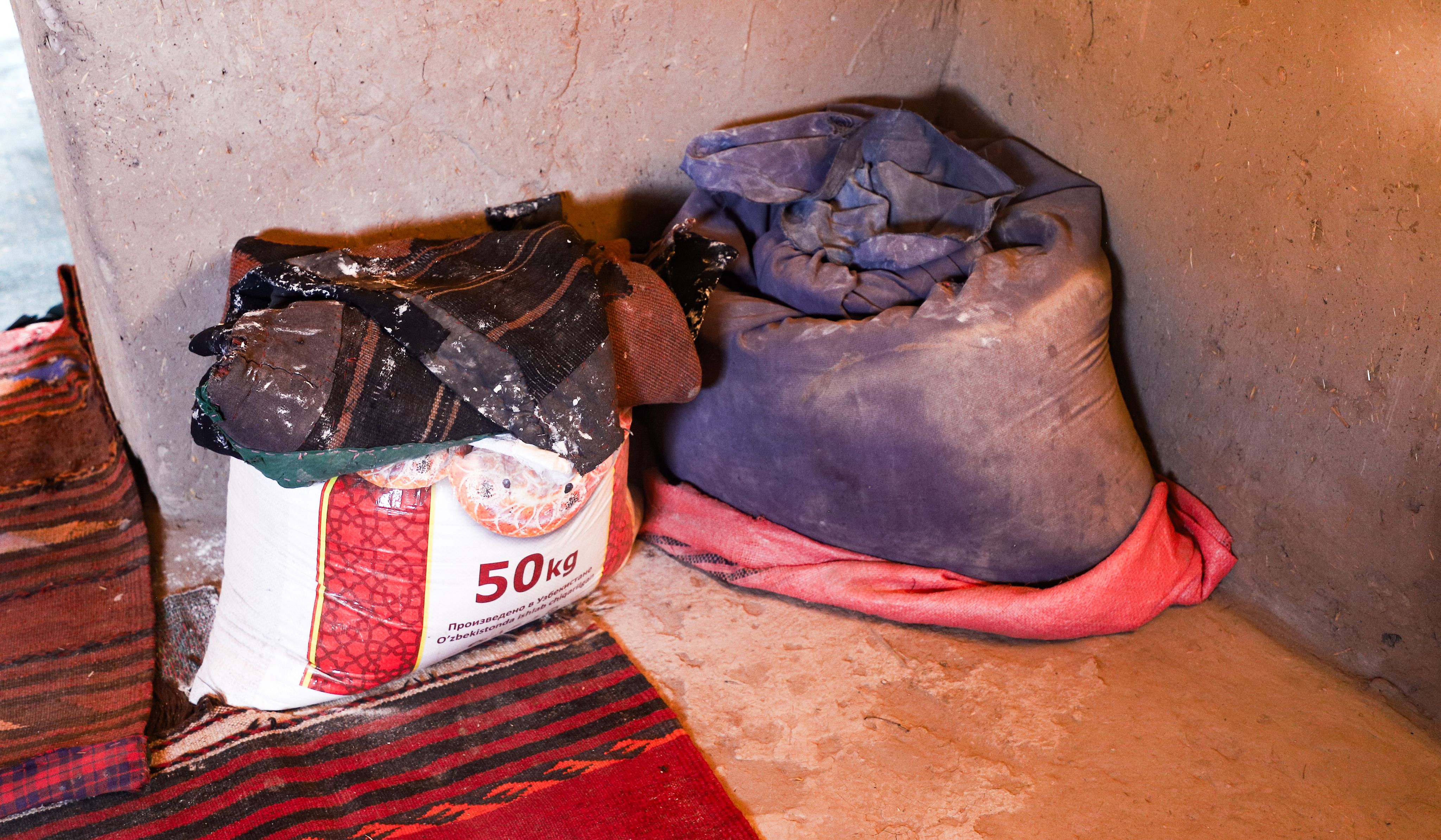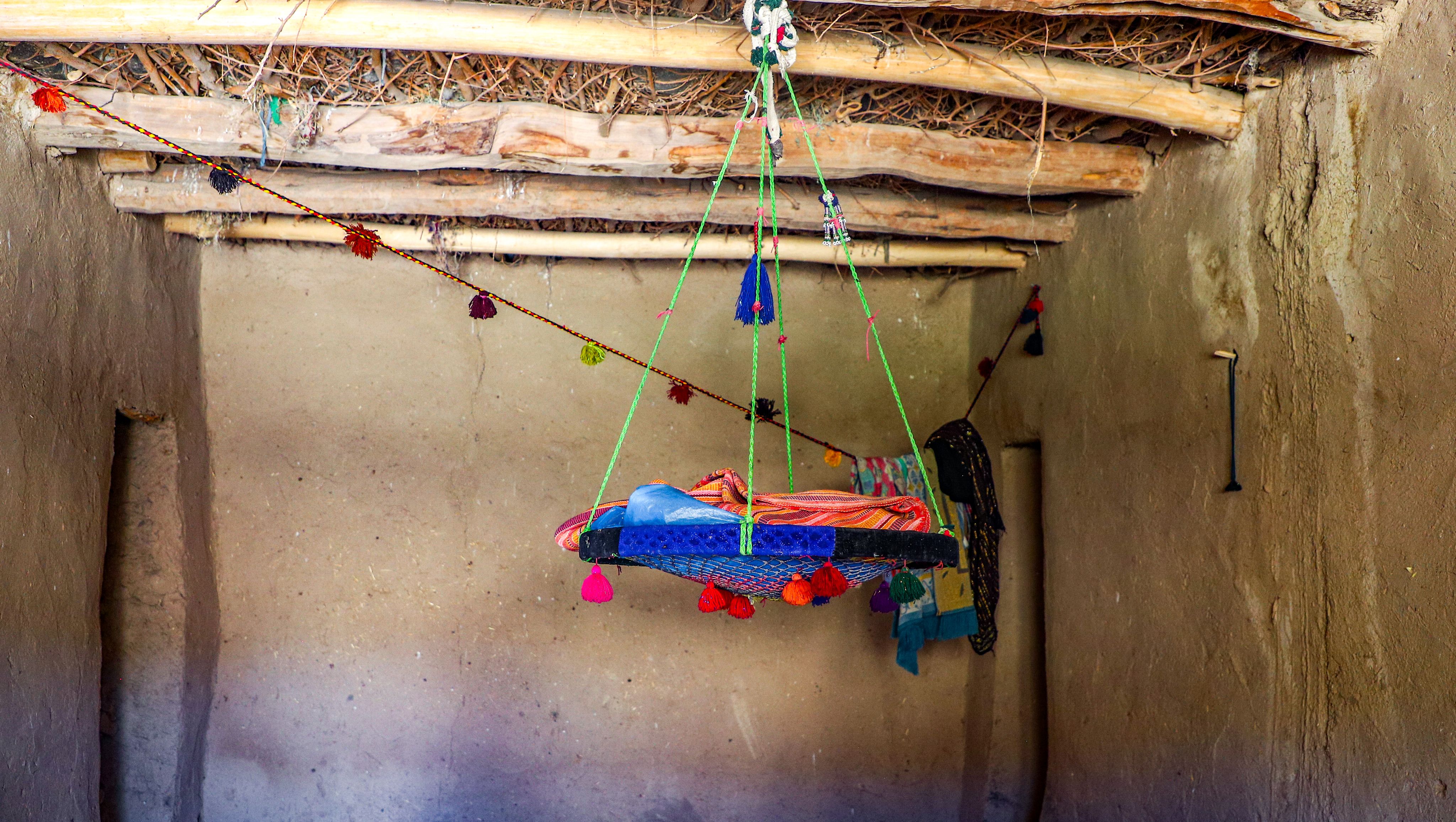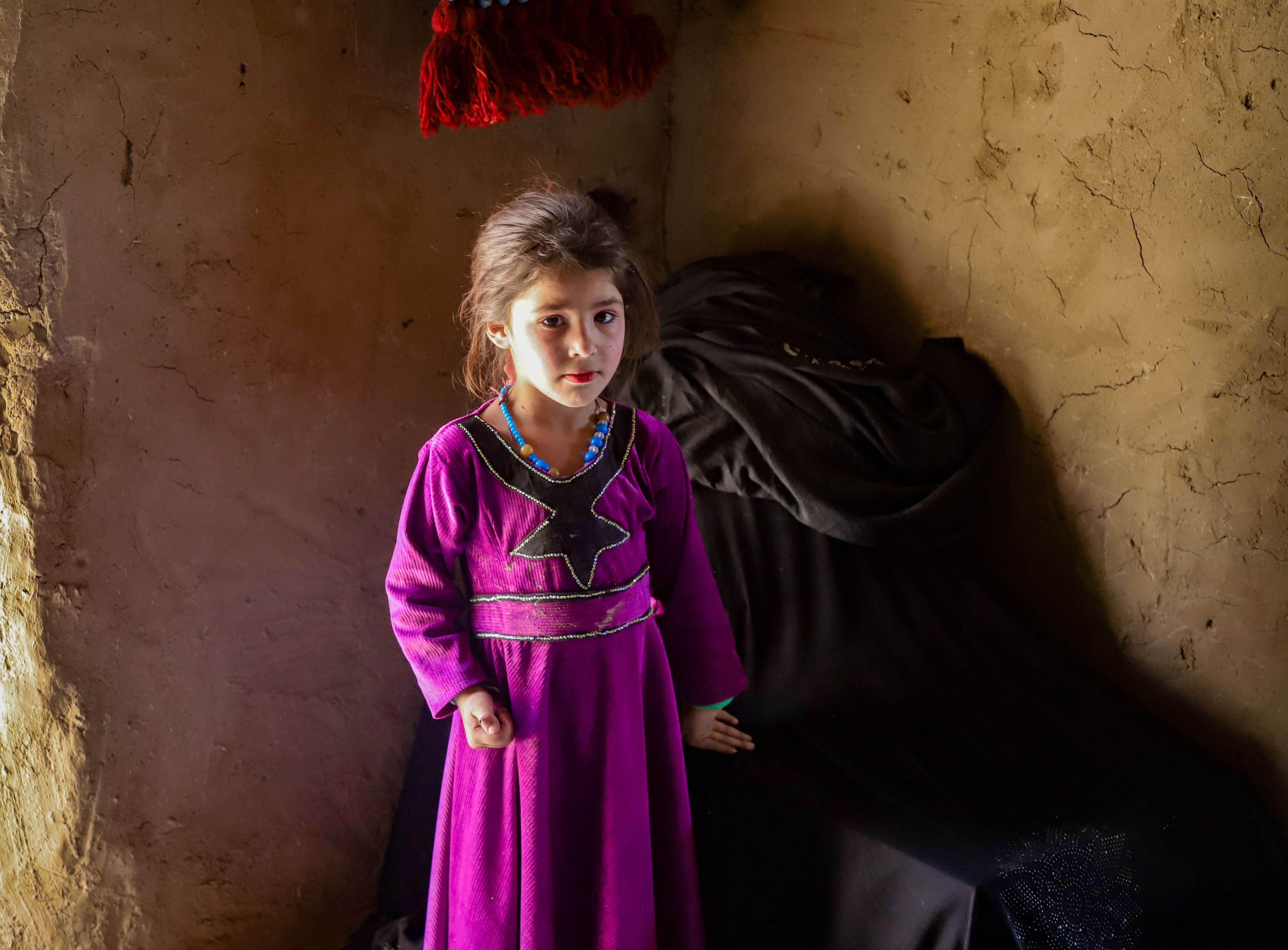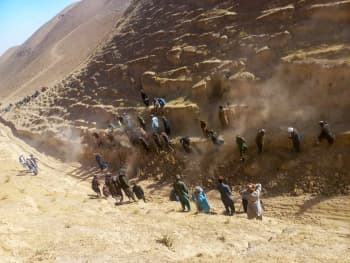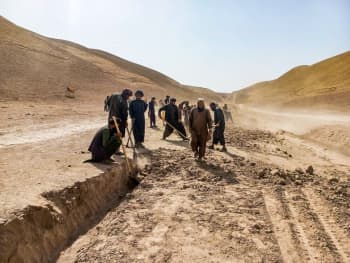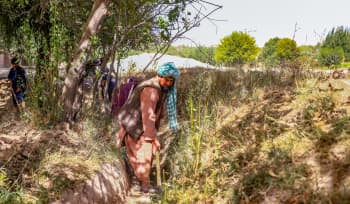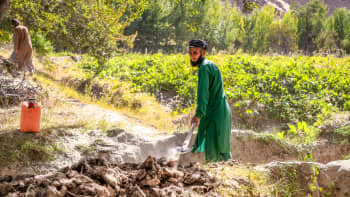Forced home, returnee families face
an uncertain future
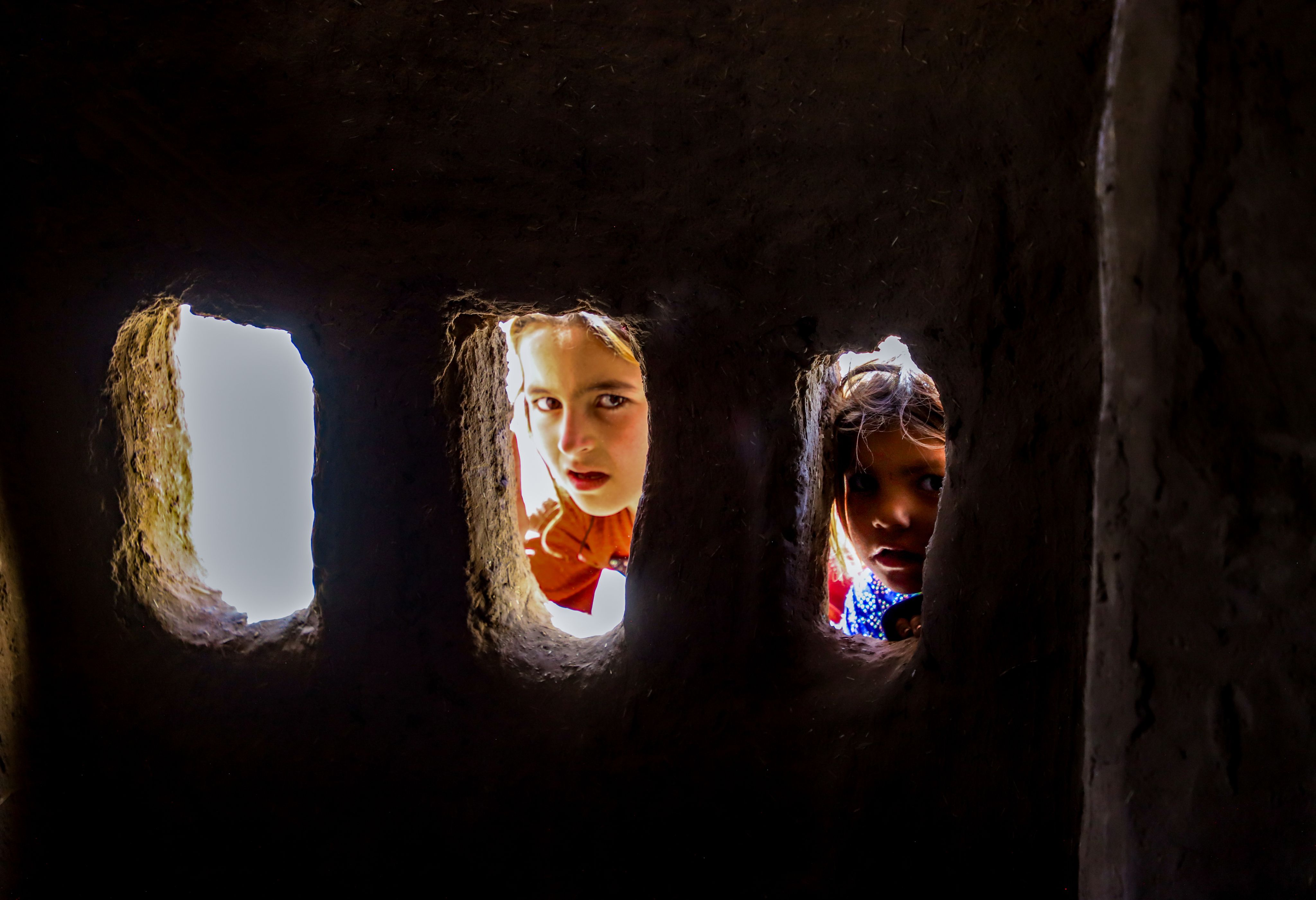
Imagine living for more than fifteen years in a place you call home, having and raising children, working, building a future, only to be told, suddenly, to leave. You must leave it all behind, taking nothing but your family and the clothes you’re wearing.
This is the reality for thousands of Afghan families forced to leave Iran in recent months. Among them is Shakila*, a mother of five deported just two months ago.
When we visited her community, her brother Sardar* guided us to her modest home, 50 metres from a World Vision Afghanistan health centre. The small house is surrounded by low, crumbling mud walls and lacks any gate. In the corner of the yard, a patch of vegetables hints at a family investment in an uncertain future while, opposite, the mud-built home itself is without doors and windows. Inside sat Shakila, holding her baby girl in her arms, surrounded by her children and elderly mother.
The house where Shakila and her family live is not their own; a kind villager lent it until they find their own shelter. Inside the corridor, Shakila sits with her children and her mother.
The house where Shakila and her family live is not their own; a kind villager lent it until they find their own shelter. Inside the corridor, Shakila sits with her children and her mother.
Shakila's two sons and her three-year-old daughter sit in the middle of the corridor next to their mother. Together with other children in their village, Shakila’s two sons are receiving an education. When the family lived in Iran, both boys attended school.
Shakila's two sons and her three-year-old daughter sit in the middle of the corridor next to their mother. Together with other children in their village, Shakila’s two sons are receiving an education. When the family lived in Iran, both boys attended school.
This house is not owned by Shakila, “We live in someone else’s house. As you can see, the rooms have no doors or windows,” she said, her voice heavy with worry. “When winter comes, I don’t know how I will keep my children warm.”
The family gathered on a worn carpet donated by neighbours. They tell us the community is supportive as if they are part of one big family. If someone needs help, the whole community gathers to support them with whatever they can afford, however, they often don’t have much themselves. “Whatever you see around us,” she explained softly, “was given by my brother and other villagers. Even the flour behind you came from my brother. Since we returned from Iran, we depend on others’ support.”
In Iran, they made a living without depending on others, her children collecting garbage while she worked long hours weaving to meet their needs. For Shakila and many others like her, the sudden expulsion cost them both homes and livelihoods, the modest fruit of years of effort.
“Police came into our home, arrested my husband, and ordered us to leave their country. We could only carry the clothes on our backs. We had everything, like a fridge, acquired over more than 17 years, but it was all left behind. If they had allowed us to take those belongings, we wouldn’t depend on others today.”
Shakila's husband, meanwhile, became addicted to substances, and is now in a hospital receiving treatment. With no work opportunities for Shakila, the family have not been able to afford basic nutritional diversity. Still, she clings to hope, sending her children to study at the village mosque, though her sons, once in public school in Iran, were expelled, struggling with the stricter educational regime.
In some respects, her story echoes the experience of over 50 other families now settling in the same village after being forced to return from Iran.
Two sacks of flour provided by Shakila’s brother to help her feed her children.
Two sacks of flour provided by Shakila’s brother to help her feed her children.
A traditional cradle, made from locally available materials, where Shakila gently rocks her little baby girl to sleep.
A traditional cradle, made from locally available materials, where Shakila gently rocks her little baby girl to sleep.
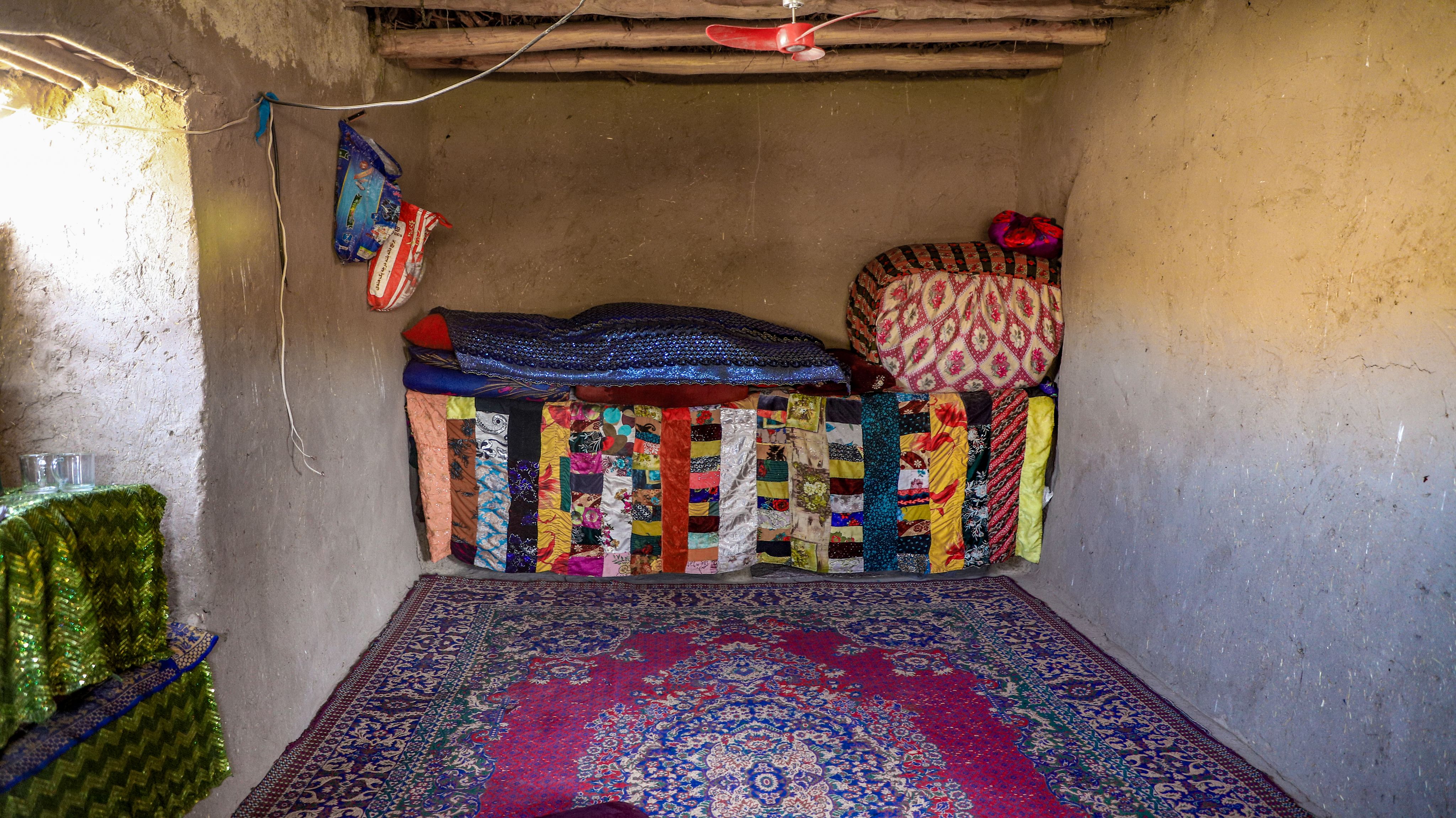
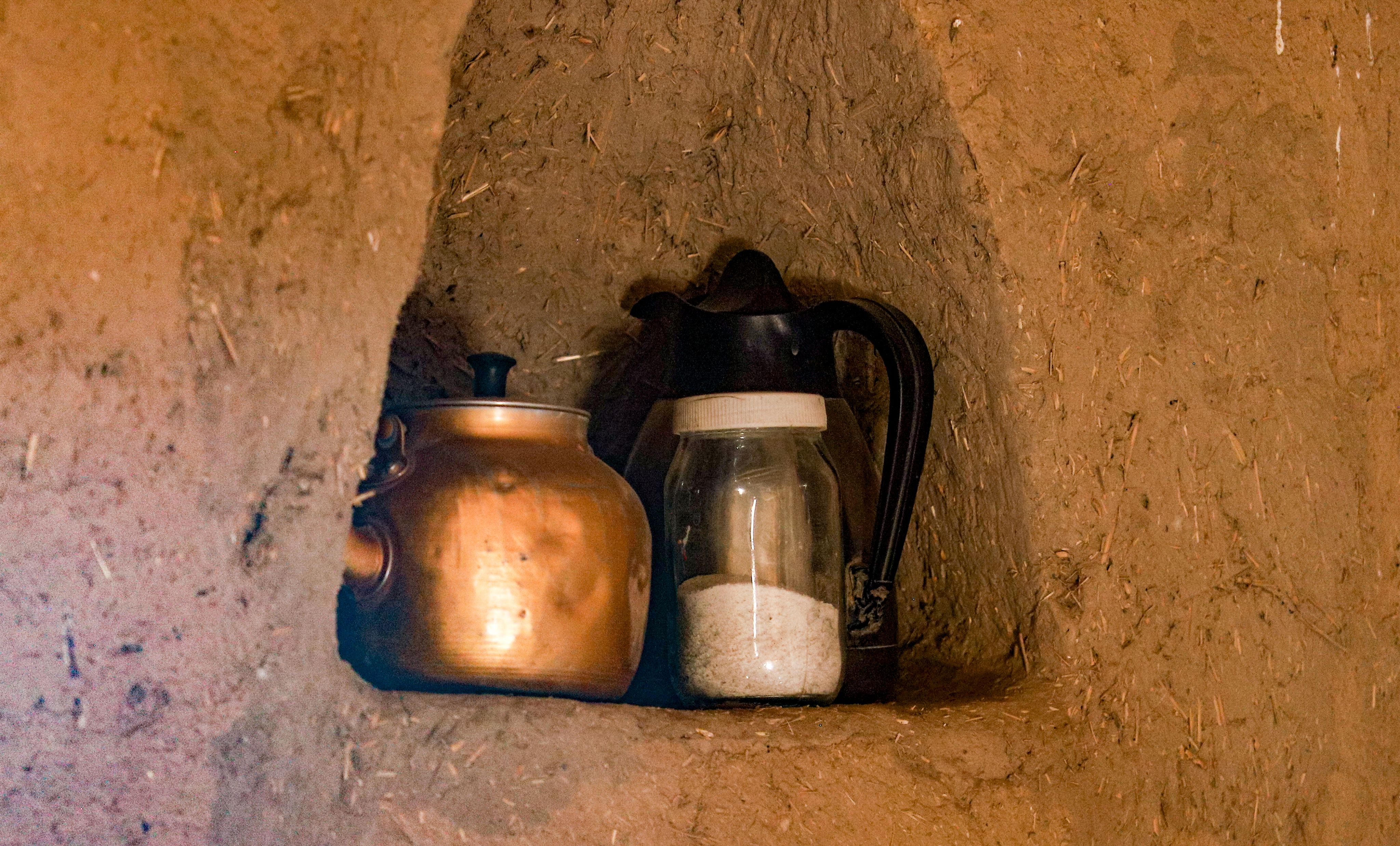
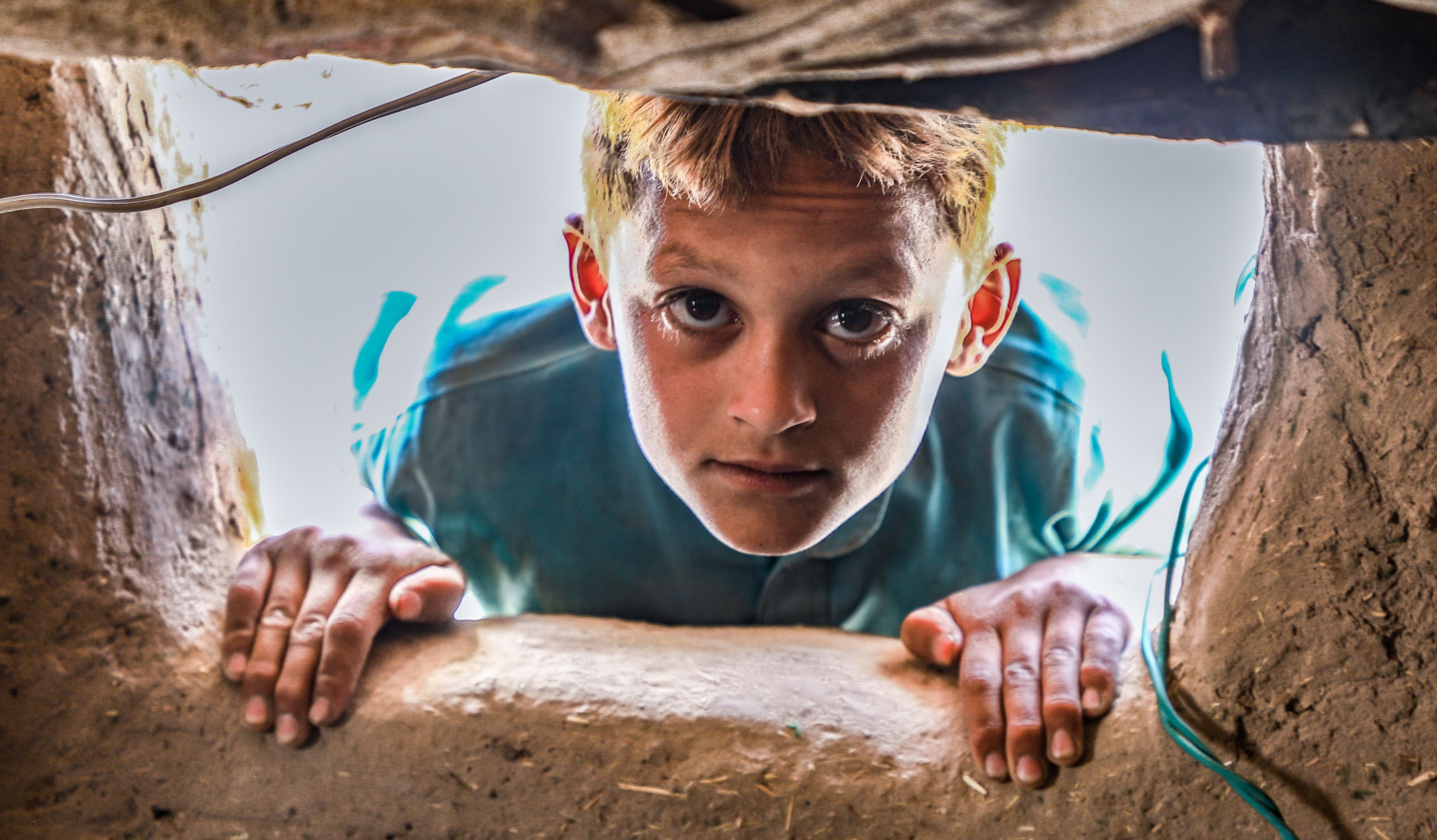
Nawab, 45, also returned with nothing. A father of six, he had spent more than six years in Iran as a daily labourer. His family had a decent life there. Now deported and returned home, he has no house or land. His brother gave him a corner of his home, the neighbours helped him to build a room there and cover it with plastic tarpaulin, and his father-in-law shared food despite his own limited means.
“Look, this is our home; we don't even have flour or anything to eat. My elderly father gave us this flour so that we can feed our children for a few days,” said his wife, Raihana*, nodding toward a half-filled sack of flour in the corner of the room. “Other than this, we couldn’t bring anything with us, and nothing was waiting for us here.”
Despite being deported with his family just a few months ago, Nawab recently borrowed money from a neighbour to attempt crossing the border again to Iran, hoping to find work to meet his family’s basic needs. This time, he went by himself, leaving his family behind. But the attempt failed, and he returned to his village.
Though skilled in architecture, steel, and tile work, he faces limited opportunities in the country. “If there’s work,” he said with a hopeful smile, “I can work ten hours a day instead of eight for the same wage. Life here can be better than in Iran, if only we have work and something to feed our children.”
Skills are not the only thing he brought with him. “I will never forget the difficulties, the hard work, and the fear from the police.” But his family members carry different memories, some cherished, others haunting. Nawab’s wife and sons, Wahid (9) and Ahmad (12), recall that in Iran they could find work and enough to eat.
The most urgent needs of these families are shelter, jobs, cash, and food.
To support them and their host community, World Vision implements the ADA-funded project Building Resilience through Community-Based Approaches and Lifesaving Assistance in Faryab Province. This integrated programme serves 1,500 families with health, nutrition, and cash-for-work support, enabling them to safeguard their children’s wellbeing.
Nawab's daughter
Nawab's daughter
The small room that Nawab, his wife, and their five children call home.
The small room that Nawab, his wife, and their five children call home.
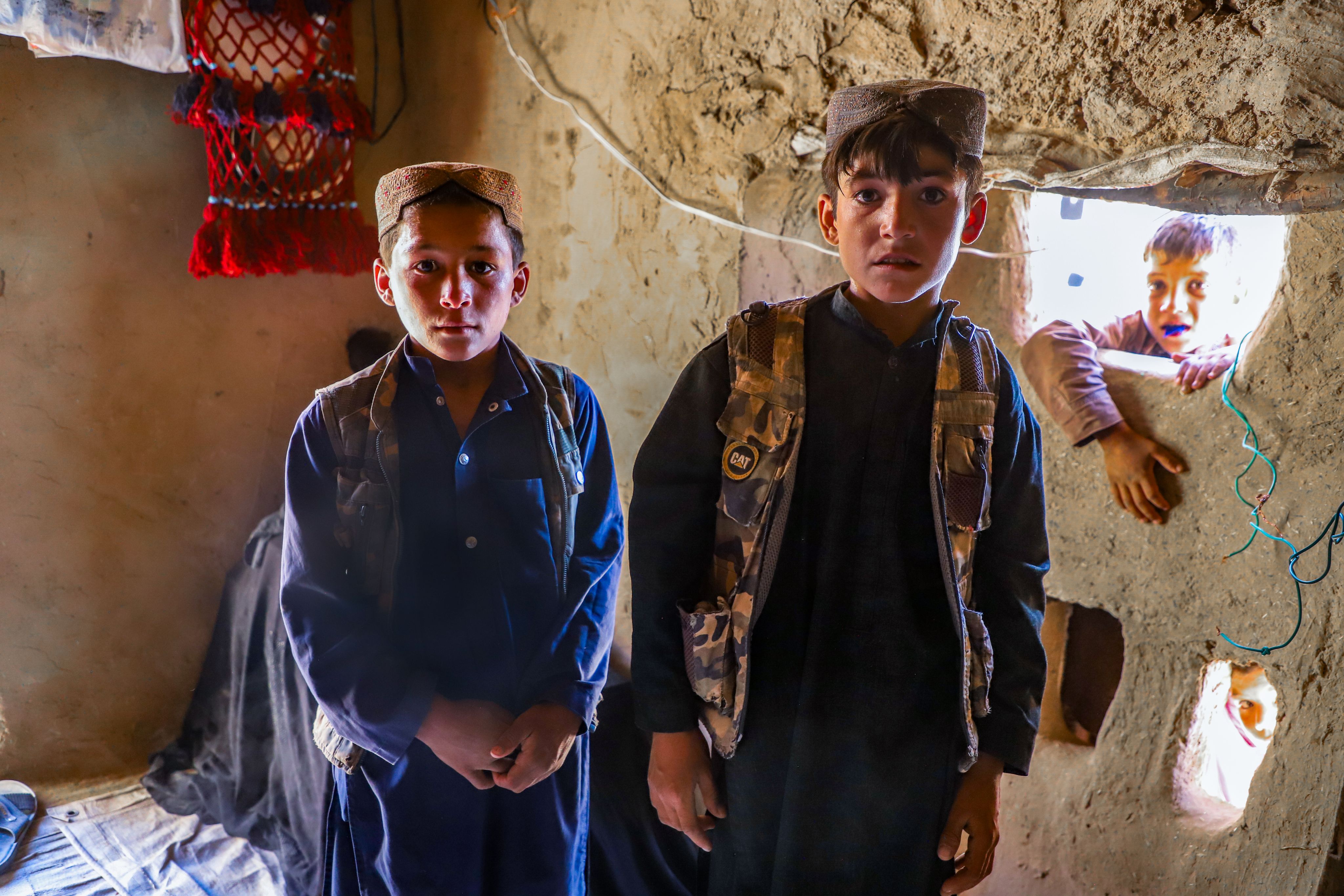
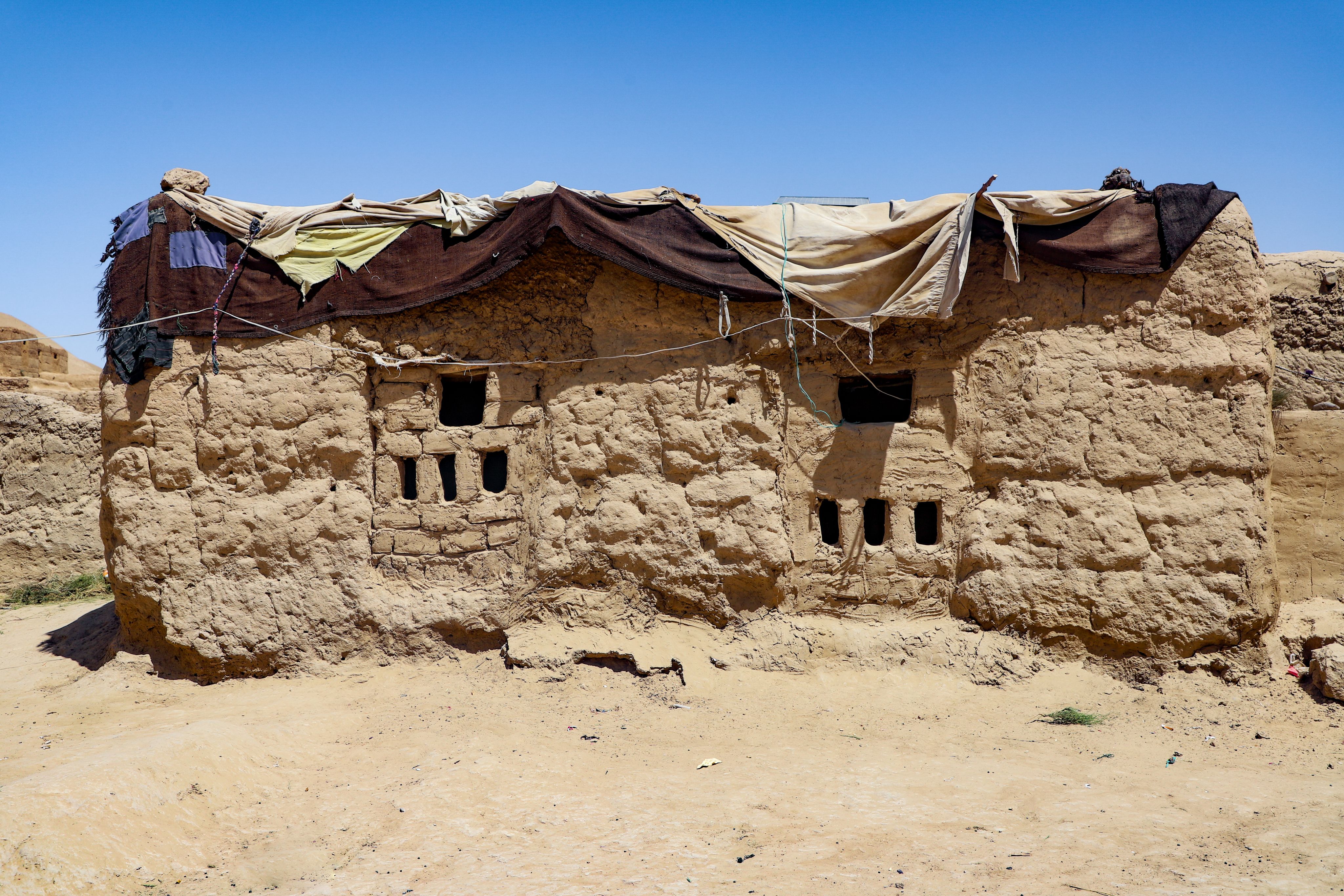
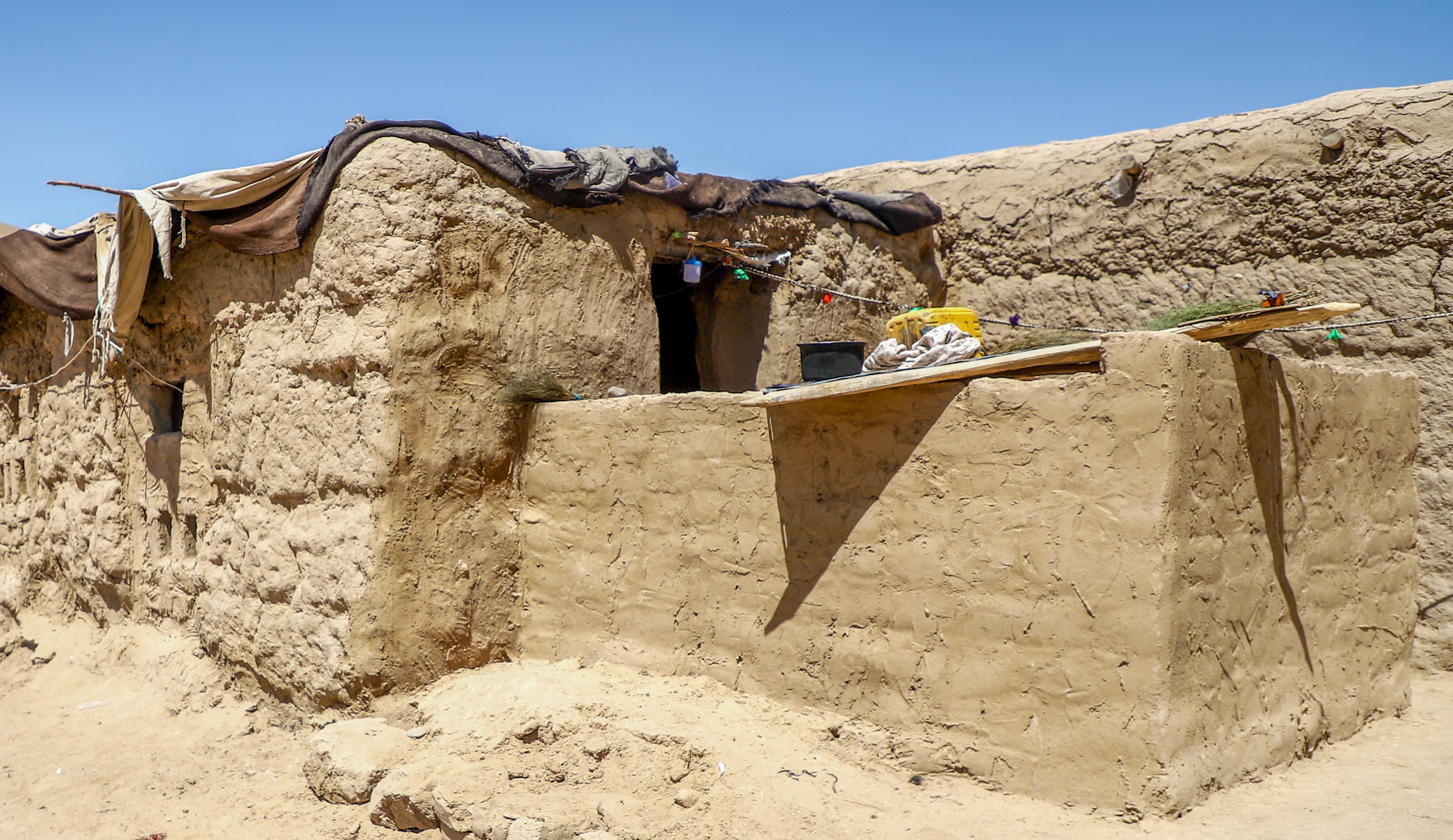
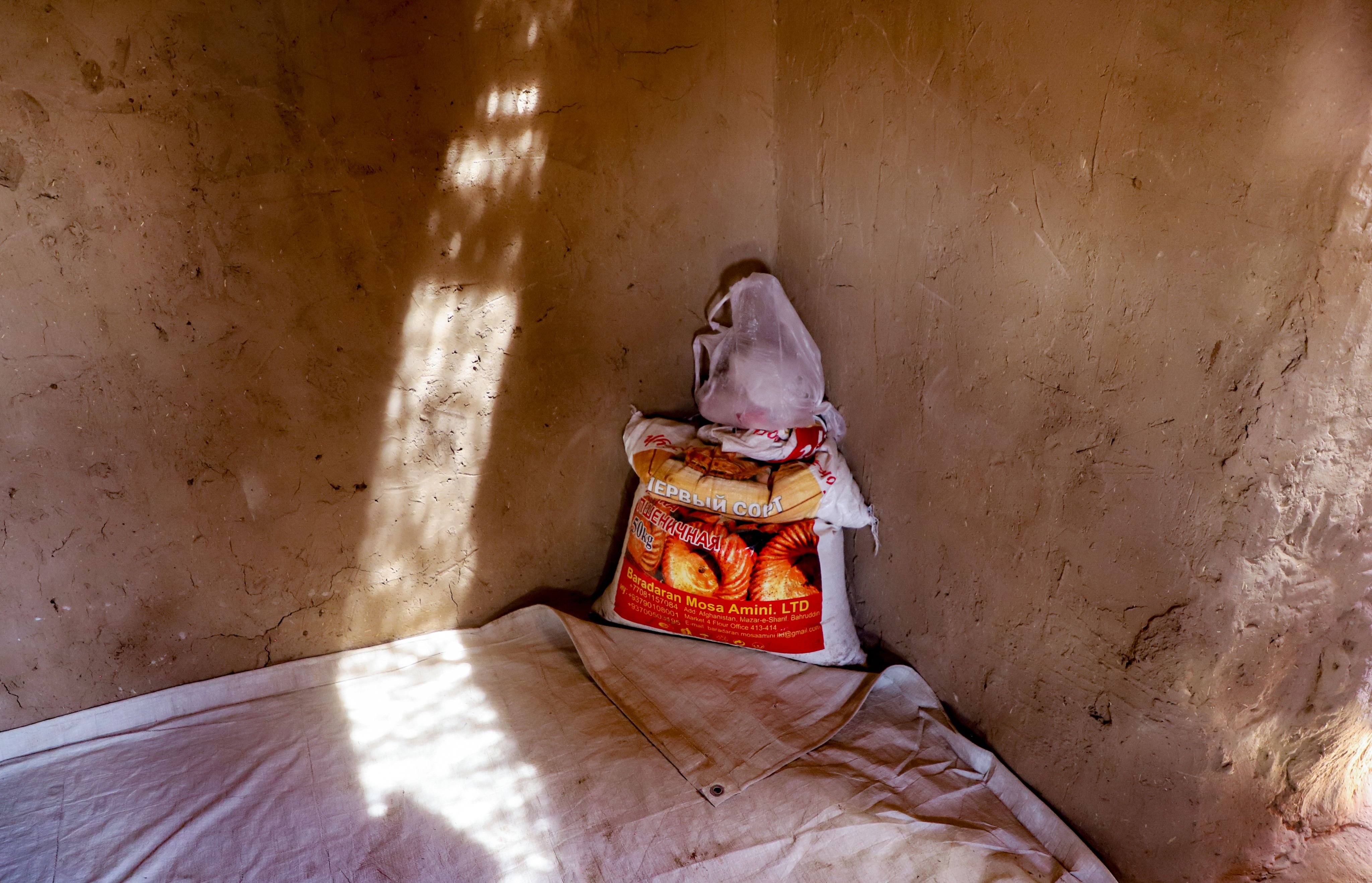
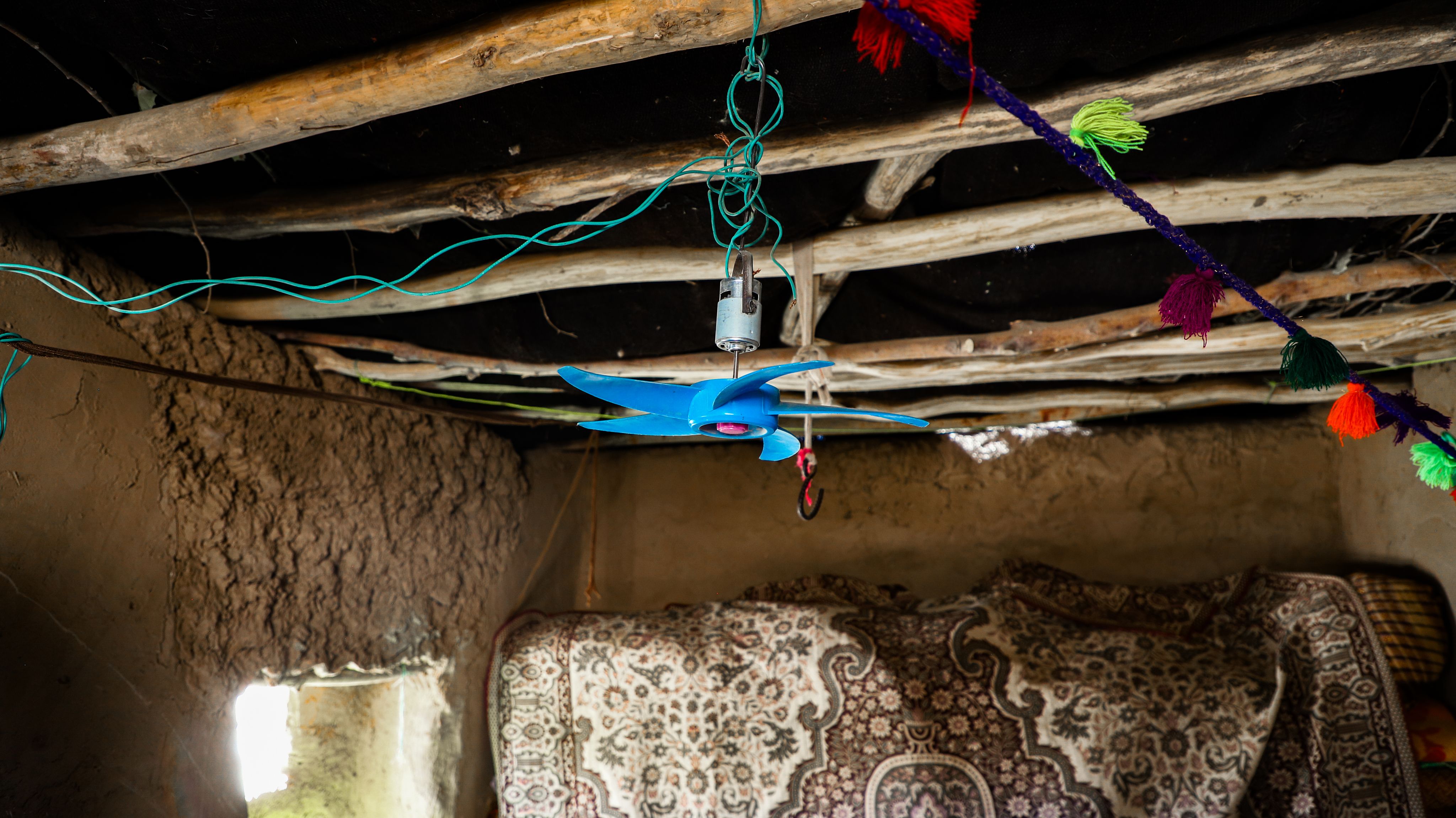
The health centre offers outpatient care, malnutrition treatment, vaccinations, midwifery, mental health services, and health education. While the cash-for-work programme paves roads linking four villages to Chehel Gazi and rehabilitates canals strengthening agriculture in 12 villages.
“Through the road construction, villagers can access basic necessities, especially healthcare in an emergency,” said Mubashir, Food Security and Livelihood Officer in this project. “Before, children and women who needed urgent care couldn’t access it in time.”
Constructing and rehabilitating the irrigation system boosts agriculture production, prevents harm to agriculture caused by drought, increases households’ income, and provides income opportunities for 700 families so they’re not forced to migrate to neighbouring countries,” our colleague added.
Today, Nawab earns AFN 350 per day through this programme. “I borrow flour, potatoes, and essentials from shopkeepers,” he explained, “and promise to repay when I get my wages.”
Shakila, too, benefits from the nearby clinic. When they returned from Iran, she and her two daughters fell sick. They went to the clinic and received healthcare. Since the establishment of this health centre, malnutrition rates among children have dropped by 80%.
Meanwhile, transportation from these communities to Chehel Gazi used to cost ANF 2,000, while now, with the road paved, villagers pay only ANF 600.
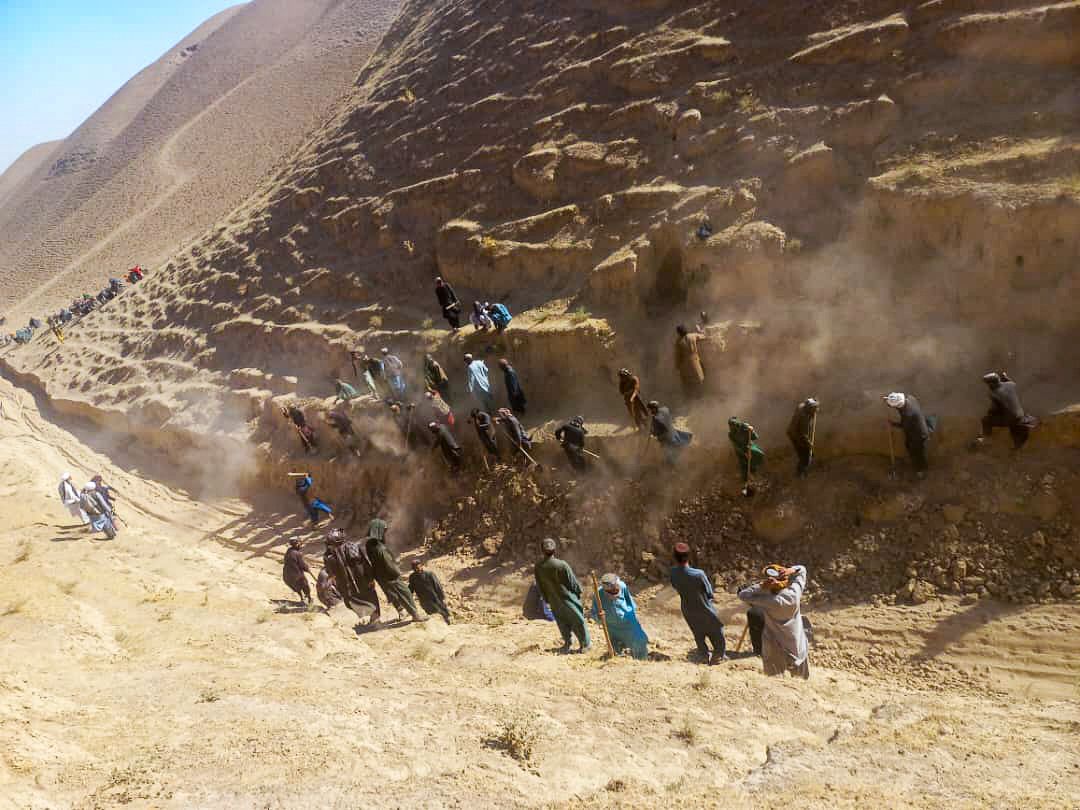
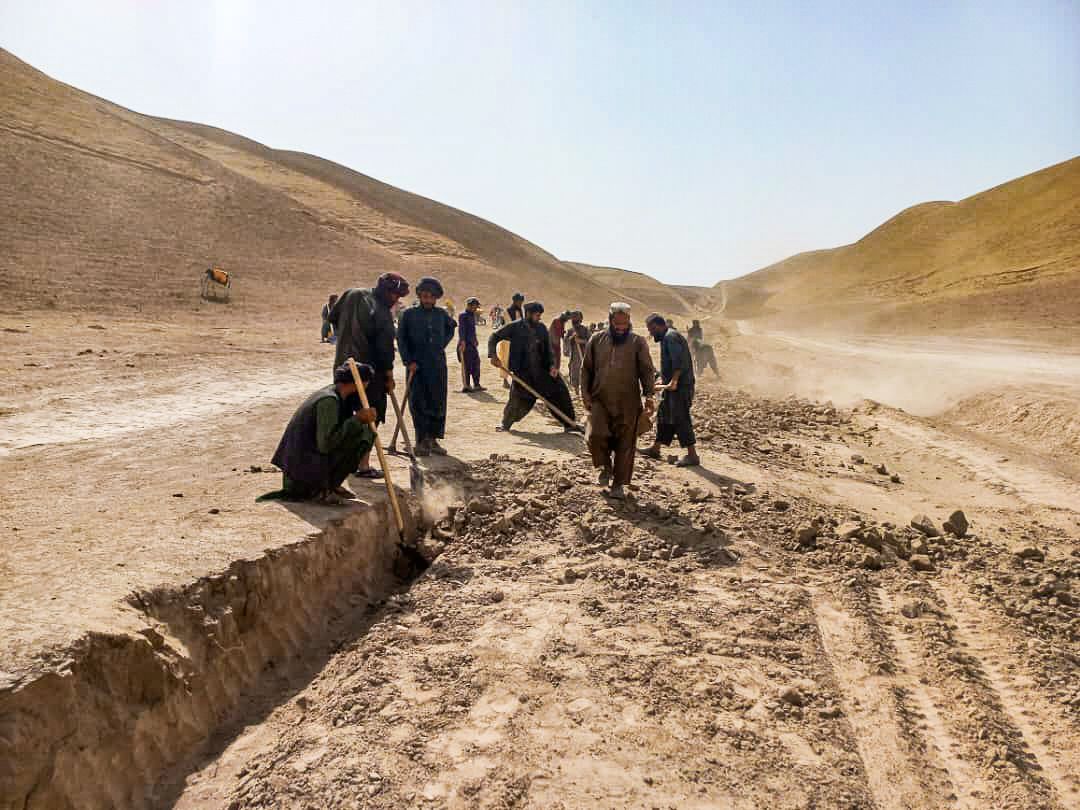
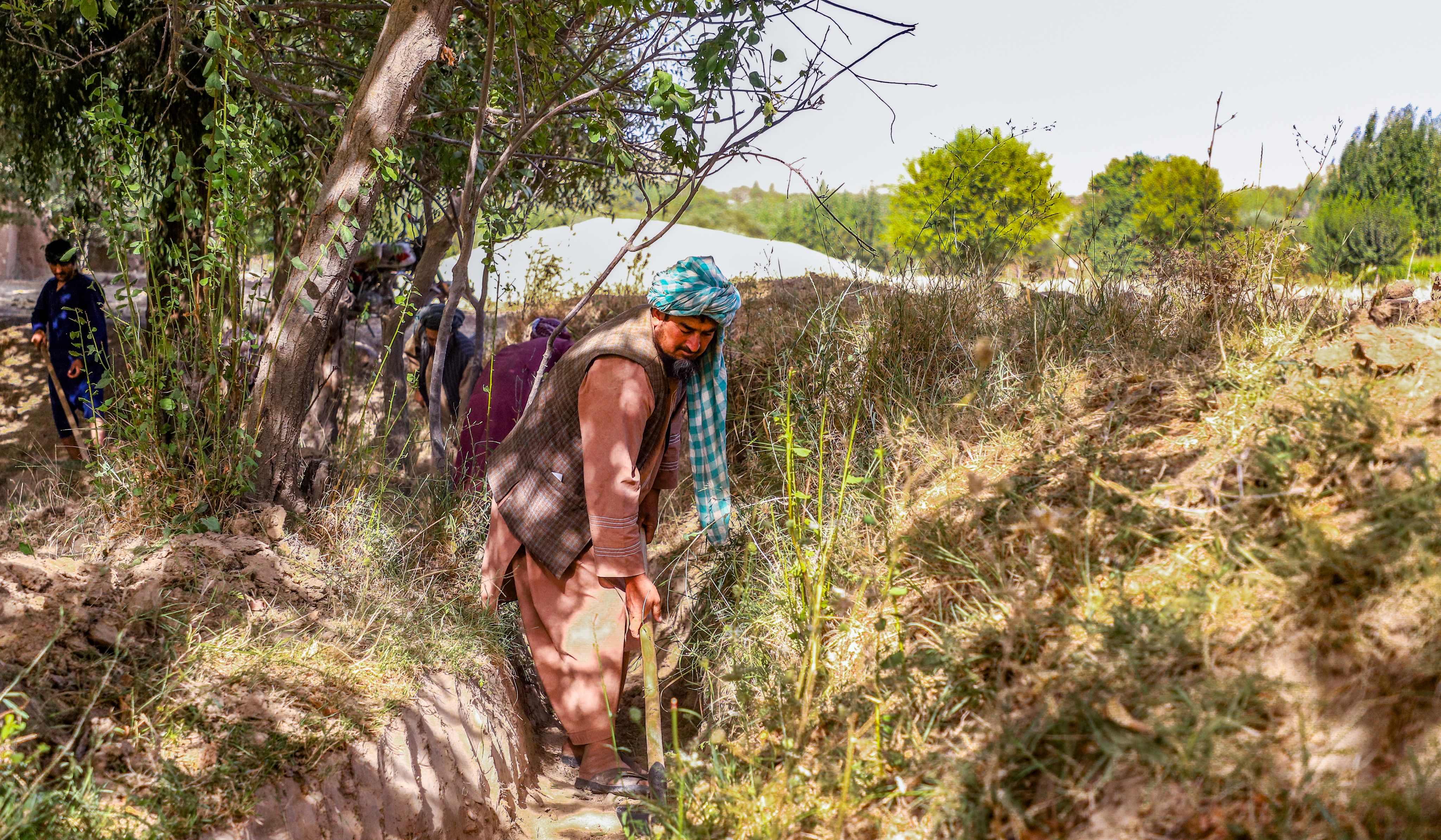
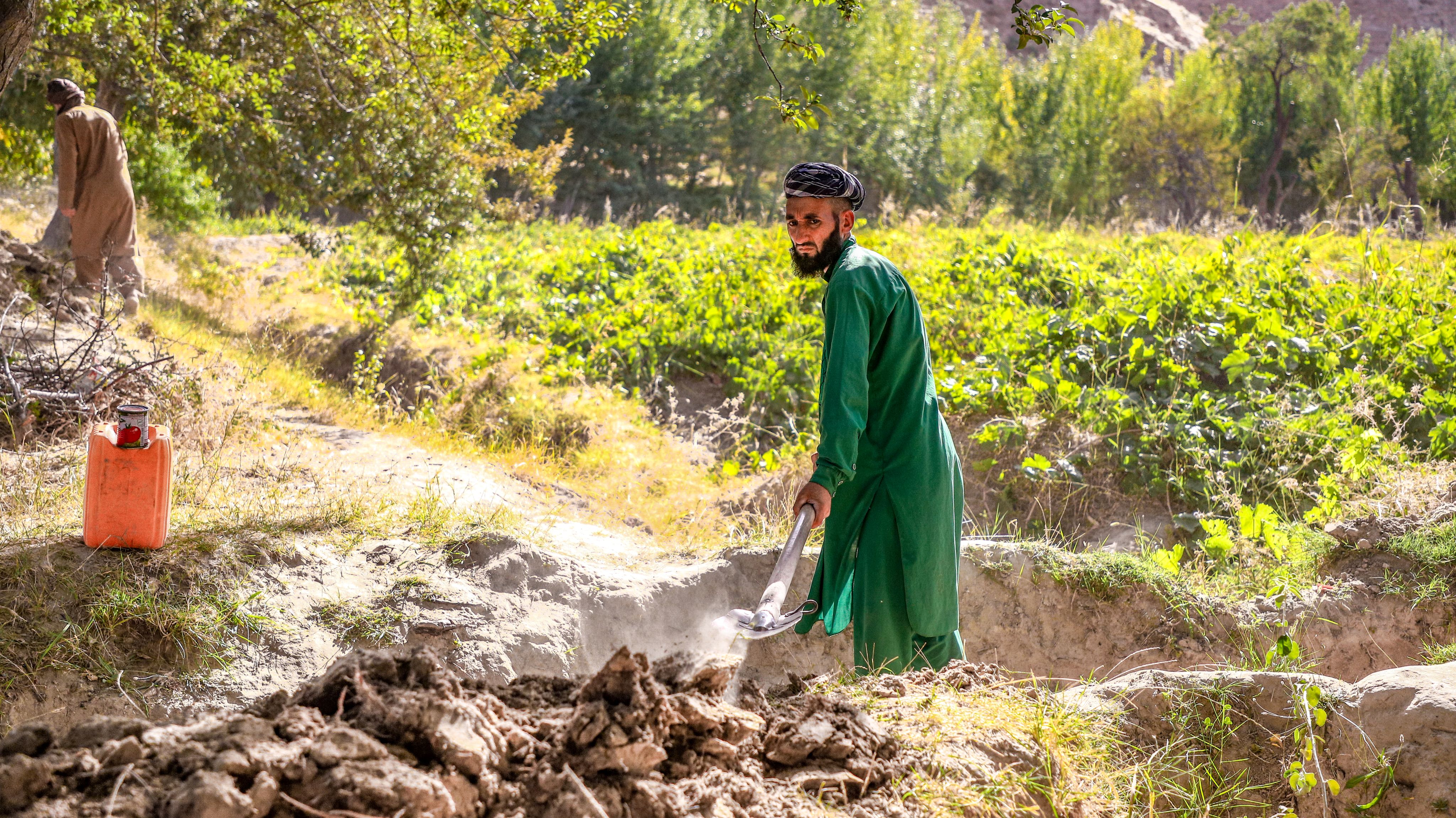
For some, the arrival of this support came too late. Musa Khan, a community member, shared, “Last year, my wife was in labour. After a four-hour midnight drive, we couldn’t reach the hospital in time, so we lost our child,” he went on. “But since this clinic was established, no one has lost their lives due to lack of access to healthcare."
Still, for others, it is a start on the road to a more stable future. “My only request is: help us to feed and clothe these children,” says Nawab's mother, pointing to her five-year-old granddaughter.
